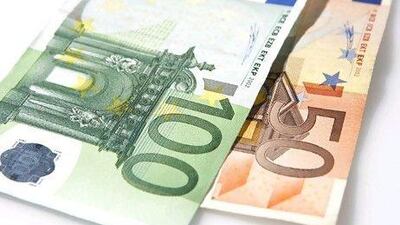Europe's slow-motion sovereign-debt crisis may appear unique, but it is not.
Editor's Pick: The big business stories making headlines today
UAE plane fares to get cheaper as competition ramps up Competition between airlines flying out of the country in increasing, as carriers and the number of flights continue to grow. read article
Emirati graduates can earn 80% more than expatriate colleagues Salaries in the UAE are up by 5 per cent, with Emirati graduates in Abu Dhabi earning between Dh25,000 and Dh32,000 - up to 80 per cent more than their expat counterparts. Read article
Middle East online users cite lack of trust for not buying via the Web A lack of trust in payment systems is cited as the main reason why just 6 per cent of Middle East internet users shop online. Read article
Just a few decades ago Europe had the exchange rate mechanism (ERM), which collapsed during a crisis very much akin to the one afflicting Europe today. Will the outcome this time be different?
The ERM pegged most European currencies' exchange-rate movements within limited bands. But ERM members' monetary policies remained home-grown, which, no surprise, occasionally led to fiscal imbalances. When capital markets smelled a problem among ERM members, they invariably shorted the most vulnerable currency and pushed that country's authorities to devalue. Authorities resisted, blamed speculators and then, usually over a frantic few days, gave in.
Markets also tested the resolve of policymakers in otherwise sound ERM countries, particularly when there were big strikes or important elections. In those cases, even a government with the proper economic fundamentals and its financial house in order could still run into trouble.
Jean-Claude Trichet, the European Central Bank (ECB) president, is well aware of this: in the early 1990s, he confronted such a crisis as the governor of the Bank of France.
Some contemporary observers of the ERM thought there was an easy fix for these troubles. If the central bank of the country that printed its "strong currency" (Germany) had been willing to provide unlimited support to a "weak currency", things would have been sorted out. Instead, Europe developed the euro, which solved the problem of speculative attacks and monetary credibility by replacing individual currencies with a new one.
It was impossible to short the lira or the franc because there were no more lire or francs. But Italy and France had to give something in return for this security: the ECB was made independent of all euro-zone governments.
Yet the current debt crisis has resurrected the old problem, with debt now filling the role currencies played under the ERM. Some euro-zone countries borrowed excessively and have been punished by the markets, perhaps deservedly so, while others, in the resulting climate of anxiety, have become targets for speculators. On July 21, euro-zone leaders agreed to make "more extensive" use of the new European Financial Stability Facility (EFSF) by permitting it to purchase endangered euro-zone countries' debt in secondary markets.
But the EFSF's "more extensive interventions" recalls the "unlimited quantities" of foreign-exchange intervention proposed to rescue the ERM. If "more extensive" means piecemeal, limited commitments that will eventually be exhausted, the scheme runs the risk of creating losses. To rule this out, "unlimited interventions" would be needed. But with whose resources and under whose authority?
This explains the growing excitement about issuing eurobonds. The conversion of all euro-zone national bonds into obligations jointly recognised by all euro-zone governments is a replica of the solution to the ERM's breakdown. This would cost Germany control over the quality of its credit.
What is missing in today's proposals is the equivalent of the ECB's independence, which ensured Germany's participation in the euro.
The concessions needed to ensure German participation are likely to be enormous. With markets' ability to monitor dubious borrowers, the guarantees will probably have to be institutional, constitutional and political - probably formal control over European fiscal policy by a body at least as credible as the ECB, which would mean a dramatic reduction in the power of national parliaments.
Such radical changes would require the consent of all euro-zone countries. And the Bundestag would have to be happy. Anything short of this is bound to fail.
Marc Flandreau is professor of international economics and international history at the Graduate Institute of International and Development Studies, Geneva
* Project Syndicate

